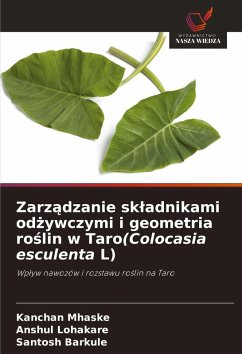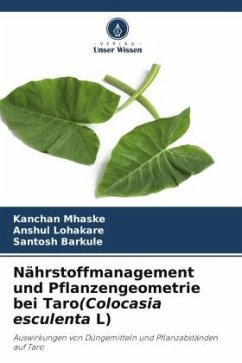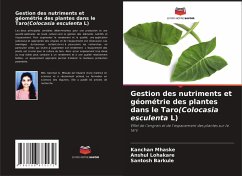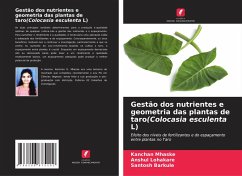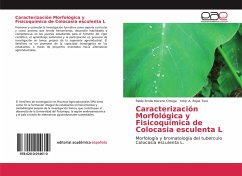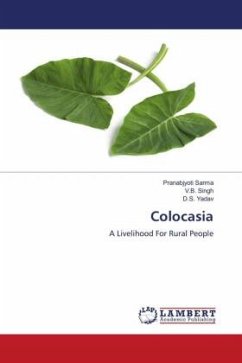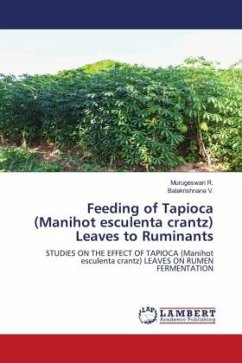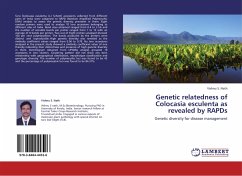
Genetic relatedness of Colocasia esculenta as revealed by RAPDs
Genetic diversity for disease management
Versandkostenfrei!
Versandfertig in 6-10 Tagen
32,99 €
inkl. MwSt.

PAYBACK Punkte
16 °P sammeln!
Taro [Colocasia esculenta (L.) Schott] accessions collected from different parts of India were subjected to RAPD (Random Amplified Polymorphic DNA) analysis to assess the genetic diversity prevalent in them. Eight random primers were used to analyze 10 taro accessions belonging to different sites of India. Band sizes obtained ranged from 0.4 to 2 kb and the number of scorable bands per primer ranged from 1 to 13 with an average of 8 bands per primer. Two out of Eight primers analysed showed 100 per cent polymorphism. The bands produced by the primers were distinct and reproducible. High geneti...
Taro [Colocasia esculenta (L.) Schott] accessions collected from different parts of India were subjected to RAPD (Random Amplified Polymorphic DNA) analysis to assess the genetic diversity prevalent in them. Eight random primers were used to analyze 10 taro accessions belonging to different sites of India. Band sizes obtained ranged from 0.4 to 2 kb and the number of scorable bands per primer ranged from 1 to 13 with an average of 8 bands per primer. Two out of Eight primers analysed showed 100 per cent polymorphism. The bands produced by the primers were distinct and reproducible. High genetic diversity was revealed as the similarity coefficient values ranged from 0.56 to 0.78. No two accessions analyzed in the present study showed a similarity coefficient value of one thereby indicating their distinctness and presence of high genetic diversity in them. Dendrogram obtained from UPGMA analysis grouped 10 accessions in two clusters. Clustering pattern did not show any strict relationship with geographical distribution, morphotype classification and genotypic diversity. The number of polymorphic loci was found to be 43 and the percentage of polymorphic loci was found to be 84.31%.




